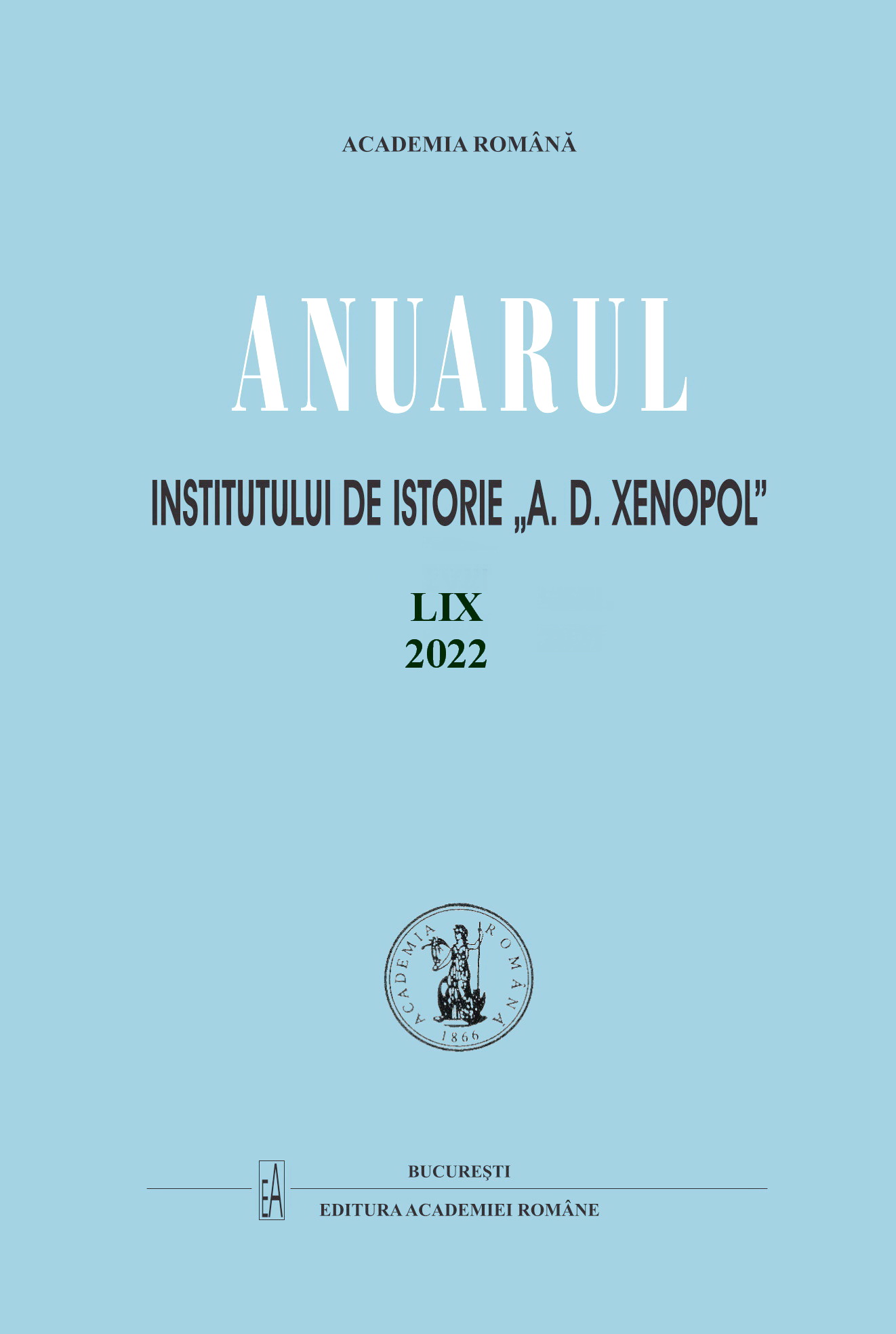DORA D’ISTRIA ȘI CHESTIUNEA ORIGINII FAMILIEI GHICA
DORA D’ISTRIA AND THE QUESTION OF THE ORIGIN OF GHICA FAMILY
Author(s): Liviu BordaşSubject(s): History, Social history, Modern Age, 19th Century
Published by: Editura Academiei Române
Keywords: Dora d’Istria; Ghica family; ethnic origins; genealogical fictions; Albanians; Aromanians; Romanians;
Summary/Abstract: The article addresses the issue of the origin of the founder of the princely family Ghica, which provided ten rulers of the Romanian Principalities (between 1658 and 1858) and a plethora of political, cultural and academic figures. Gheorghe Ghica (ante 1598-1667) came to Moldavia from Constantinople sometime before 1634. In a chronicle written by one of his contemporaries and in several others that followed he is called “Arbănaș” (Albanian). Therefore he was considered Albanian in every sense of the word, including the ethnic one, until later historians questioned the way in which the term was employed in the 17th century. Arguing that it indicated a geographic, regional, not an ethnic identity, some of them have offered circumstantial evidence that Gheorghe Ghica could have been Aromanian.In a book published between 1871 and 1873, a member of the family who was living in Italy, Elena Ghica (Dora d’Istria, 1828-1888), used the historical tradition regarding the Albanian origin of the first Ghica in order to present the entire family as “the Albanians of Romania” (on the model of the Arbëreshë, the Italo-Albanians), despite the fact that none of his descendants are known to have identified themselves as Albanian (or to speak Albanian, for that matter). This was not only a scholarly project, but also one with personal, very subjective, motivations. Some of these were related to her changed feelings, after 1858, towards the Romanian political class (represented mainly by competing aristocratic families), while others were directly determined by her public advocacy for the political rights of the Albanian people, whose cause she embraced in the early 1860s. Following her book, the Ghica family and especially herself were annexed by the patriotic Albanian literature and remained in the Albanian historiography even after the end of the romantic-nationalist era.Discussing the primary sources (and their later use), the article concludes that there is no direct evidence regarding the ethnicity of the first Ghica, while the circumstantial evidence gives more support to the Aromanian than to the Albanian hypothesis.
Journal: Anuarul Institutului de Istorie »A.D. Xenopol« - Iaşi
- Issue Year: LIX/2022
- Issue No: 59
- Page Range: 83-101
- Page Count: 19
- Language: Romanian

